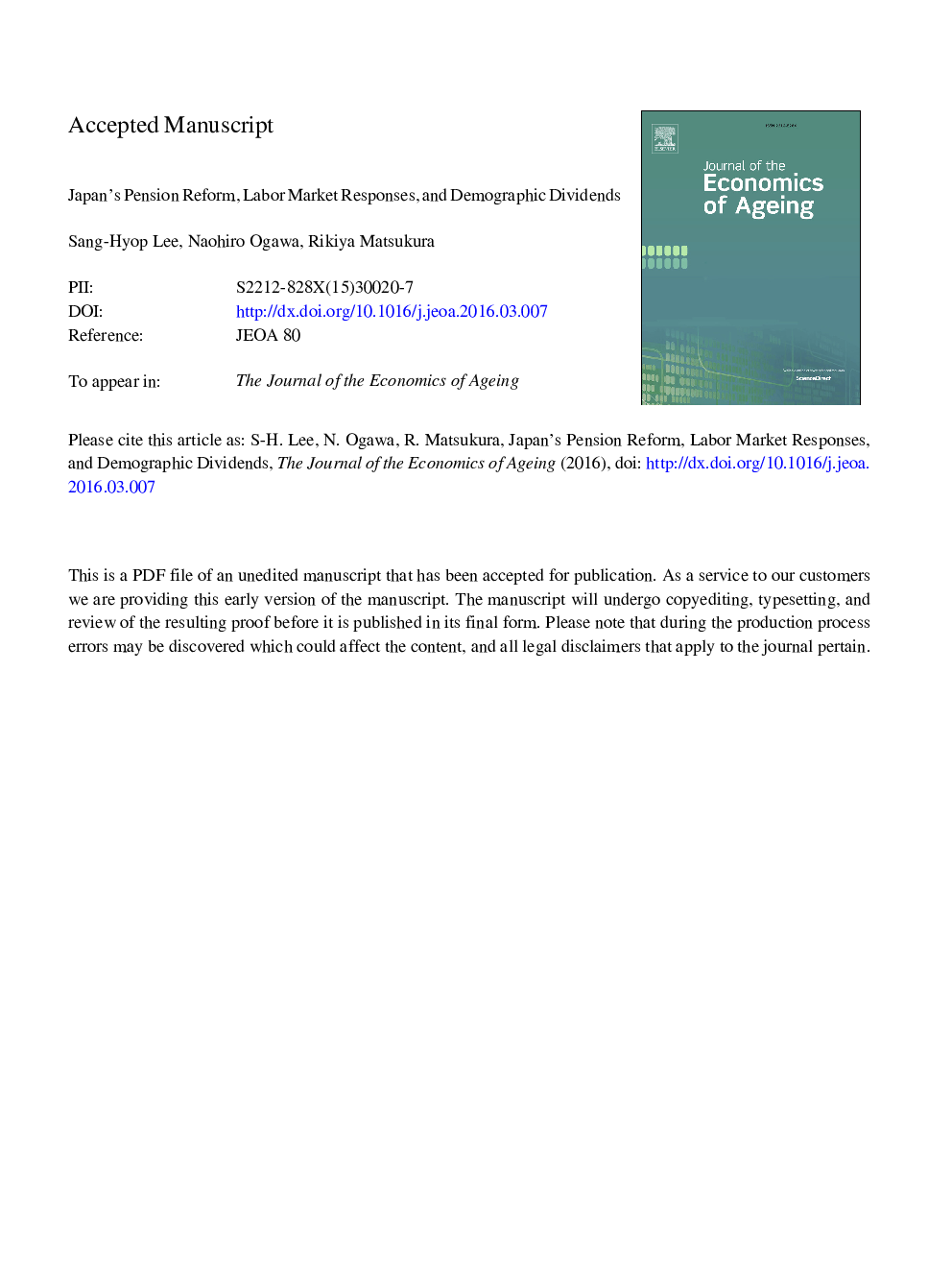| Article ID | Journal | Published Year | Pages | File Type |
|---|---|---|---|---|
| 5100190 | The Journal of the Economics of Ageing | 2016 | 27 Pages |
Abstract
Japanese government has been implementing a series of changes in pension programs. This paper specifically focuses on the economic impacts of the increase in pension eligible age in Japan. The results show that employment to population ratio increases by 2.2 percentage points for people ages 55-59, 5.9 percentage points for 60-64, and 1.9 percentage points for ages 65-69, but does not have an effect on other age groups. The larger behavioral response is in contrast with much smaller responses found in Europe and the U.S. This could be due to the absence of early retirement pension benefits in Japan. The labor income increases for these age groups accordingly. The results based on the Japan data from the 1984-2004 National Transfer Accounts also suggests the shift of age profiles of pension benefits toward older age groups due to the reform. Our simulation results suggest that, with the estimated labor market responses in the study, the policy change will decrease savings in the long-run, although the effect will be quite modest.
Related Topics
Social Sciences and Humanities
Economics, Econometrics and Finance
Economics and Econometrics
Authors
Sang-Hyop Lee, Naohiro Ogawa, Rikiya Matsukura,
